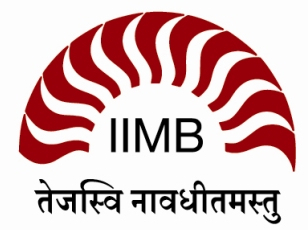A Critical Evaluation of SEZs
with Trilochan Sastry,
Professor
Special economic zones or SEZs have had a controversial existence. While attracting huge investments and promoting industrialisation, they have been mired in protests over forced land acquisition, inadequate compensation to land-owners and trampling of citizen rights. It is essential to rework the SEZ policy and modify it to suit the Indian context.
In this interview with Prof. Trilochan Sastry, faculty in the Quantitative Methods and Information Systems area, who has researched extensively in rural development, democracy and governance, we try to understand the adverse effects of the SEZ policy in India with respect to sustainability of the policy, displacement of farmers, and the constitutional validity of the policy itself. We also explore alternative growth policies that can balance need for development with welfare of the people.
Conclusion
The SEZ Act was passed without extensive political and economic debate that normally goes into making a major policy. The Indian context is vastly different from the Chinese growth model, with the result that a number of issues have cropped up. Farmers are often forced away from fertile lands with inadequate compensation and no alternate means of livelihood. The land acquisition process leaves much to be desired. This has led to resentment among sections of the society, that has at times turned into violent protests, as in Singur and Nandigram. Also, instead of conducting large-scale reforms, SEZs are used to get around existing restrictive regulations that hamper industrial growth. Businesses too have responded with SEZ investments motivated primarily by the potential for tax benefits, investments that would have occured anyway. Hence the SEZ policy is not sustainable in the long-term.
India should explore other economic frameworks for growth. With agriculture the biggest sector in terms of livelihood, localised food processing can lead to significant value addition and employment generation. Removing the barriers and permits required to start businesses and thus boosting entrepreneurship will also go a long way towards wealth creation throughout the country.
Quotes
From the interview
"There is some way of sharing it. People [farmers] should get shares in the companies, they should remain owners of the land, and they should be able to renegotiate the terms and conditions of their lease."
(On making the land acquisition process fairer)
"Reviving the water bodies which tremendously boost agricultural productivity, reviving the forests, rejuvenating natural resources."
(On ways to boost growth without adverse effects)
Profile
Trilochan Sastry is Professor in Quantitative Methods and Information Systems Area at IIM-Bangalore. He has an MBA from IIM Ahmedabad and Ph.D from MIT, USA.
He is a member of the Bretton Woods Committee and an Associate Dean at Indian School of Business, Hyderabad, India. He chairs the Association for Democratic reforms and is active in the public policy sphere.
Prof. Sastry's research interests include operations research, supply chain management, rural development, democracy and governance. He is Secretary, Centre of Collective Development and has been awarded the 'Outstanding Contribution to National Development Award' by IIT Delhi. He has contributed invited book articles and published articles in various renowned journals.
